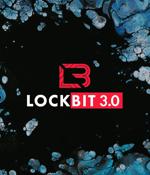Security News

Your profile can be used to present content that appears more relevant based on your possible interests, such as by adapting the order in which content is shown to you, so that it is even easier for you to find content that matches your interests. Content presented to you on this service can be based on your content personalisation profiles, which can reflect your activity on this or other services, possible interests and personal aspects.

The NCA, FBI, and Europol have revived a seized LockBit ransomware data leak site to hint at new information being revealed by law enforcement this Tuesday. As part of this disruption, the police converted one of the data leak sites into a press release site, where the UK's National Crime Agency, the FBI, and Europol shared information about what they learned during the operation, a list of affiliates, and how LockBit lies to victims by not always deleting stolen data after a ransom is paid.

The Hôpital de Cannes - Simone Veil in France announced it received a ransom demand from the Lockbit 3.0 ransomware gang, saying they refuse to pay the ransom. Yesterday, the establishment announced on X that it has received a ransom demand by the Lockbit 3.0 ransomware operation, which it forwarded to the Gendarmerie and the National Agency for Information Systems Security.

A LockBit ransomware kingpin has been sentenced to almost four years behind bars and ordered to pay more than CA$860,000 in restitution to some of his victims by a Canadian court as he awaits extradition to the US. During a sentencing hearing this week, Justice Michelle Fuerst said 34-year-old Mikhail Vasiliev was a cyber-terrorist who was "Motivated by his own greed," according to CTV News. Vasiliev, a dual Canadian-Russian national living in Bradford, Ontario, pleaded guilty last month to eight counts of cyber-extortion, mischief, and weapons charges against Canadian victims, including businesses in Saskatchewan, Montreal, and Newfoundland.

A 34-year-old Russian-Canadian national has been sentenced to nearly four years in jail in Canada for his participation in the LockBit global ransomware operation. Mikhail Vasiliev, an Ontario...

Russian-Canadian cybercriminal Mikhail Vasiliev has been sentenced to four years in prison by an Ontario court for his involvement in the LockBit ransomware operation. The man was a key member of the notorious LockBit ransomware gang, involved in many of the operation's high-profile attacks.

Operation Cronos, led by the UK's National Crime Agency and the US's FBI, was put together by agencies from ten countries with the aim of closing down the world's most successful ransomware gang, LockBit. Best of all, the countdown timer by which LockBit displayed how long victims had left to pay up had been duplicated, only this time counting down to the unmasking of LockBit's head honcho, LockBitSupp.

Infosec in brief The infamous LockBit ransomware gang has been busy in the ten days since an international law enforcement operation took down many of its systems. LockBit quickly set up a new website and updated it with a list of forthcoming victim ransom deadlines - one of which included data allegedly stolen from Fulton County, Georgia.

Overcoming the pressures of cybersecurity startup leadershipIn this Help Net Security interview, Kunal Agarwal, CEO at Dope Security, offers a look into the CEO's leadership philosophy, the process of building a high-caliber team, and the unique challenges of navigating a startup in the tech industry. How organizations can navigate identity security risks in 2024In this Help Net Security interview, Deepak Taneja, CEO of Zilla Security, discusses identity security risks and threats.

The LockBit ransomware gang is once again conducting attacks, using updated encryptors with ransom notes linking to new servers after last week's law enforcement disruption. Last week, the NCA, FBI, and Europol conducted a coordinated disruption called 'Operation Cronos' against the LockBit ransomware operation.